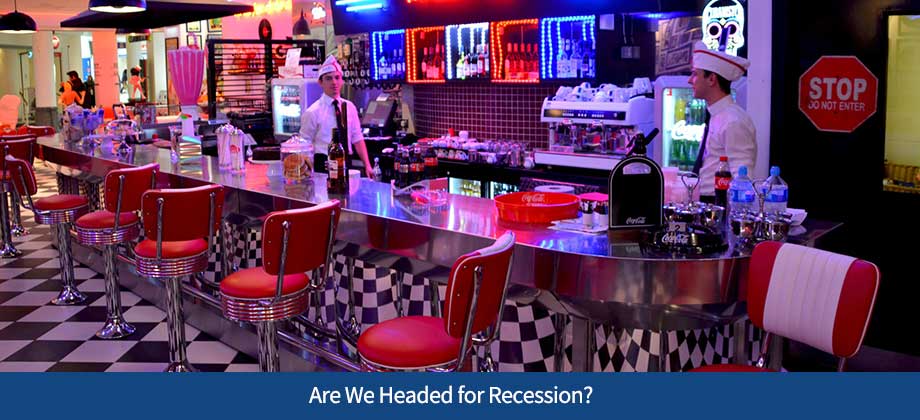Are We Headed for Recession?

Recession obsession. Lately, it seems like all we can talk or think about is the possibility of yet another recession—at a time when it still doesn’t feel like we fully recovered from the last one. We are getting mixed messages, with economists saying a recession is both unavoidable and unlikely in the same breath. So, what’s the deal? Are we headed for recession or safe (for the time being)?
There are two schools of thought here – and they both depend on how we’re outlining what a recession actually is. According to Investopedia, “A recession is a significant, widespread, and prolonged downturn in economic activity. Because recessions often last six months or more, one popular rule of thumb is that two consecutive quarters of decline in a country’s Gross Domestic Product (GDP) constitute a recession.” With that being said, the United States will have entered a recession in the beginning of summer in 2022.
Sounds fairly clear-cut, right?
Not if you ask the agency that outlines business cycles, the National Bureau of Economic Research (NBER). “The NBER’s traditional definition of a recession is that it is a significant decline in economic activity that is spread across the economy and that lasts more than a few months, according to their website. The main reason the NBER would argue against the idea that we’re in a recession is two-fold: one, we’re seeing higher-than-expected job growth; and two, corporate earnings are skyrocketing.
If we’re not in a recession now, signs point to one on the horizon in 2023–a recession some are predicting to be a “whopper.” The Federal Reserve continues to raise interest rates in an effort to combat inflation, which is also at record highs. And why is that? Inflation is essentially when supply and demand are out of sync. After pandemic restrictions loosened, the consumer demand for items that were unnecessary during lockdown exploded; however, supply was still waning. High demand plus low supply resulted in rising prices and worker wages, which is why we’re seeing inflation at such unprecedented rates. To bring prices down from their astronomical levels, the Federal Reserve had to step in and raise interest rates. According to ABC News.com, “In theory, the rate hikes should cut demand, slow down the economy and lower inflation.”
What does inflation have to do with a recession, then? The two are linked in some respects. High inflation is usually an indicator of a looming recession because businesses focus less on production and more on increasing their prices. When the Federal Reserve turns to interest rate hikes as a method of combating inflation surges, that’s generally seen as a recession trigger–because interest rate hikes are essentially slowing down the economy: when the cost of money increases too sharply, economic growth can slow just as sharply.
While there are arguments on both sides, the general consensus is clear: If you don’t think we’re in a recession at the moment, just wait.
ARF Financial has been leading the small-business loan industry for decades, helping secure millions of dollars in loans to help entrepreneurs and business owners reach their fullest potential. Once a loan is approved, we deliver immediate access to your funds, fixed payments, and flexible terms. Plus, you can defer up to 50 percent of your principal for even lower payments now. Not only do we offer best-in-class loan products, we’ve also always got a great deal cooking. Check out our current offers to learn what perks we’re presenting this month.

